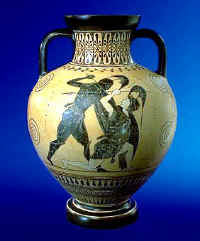
Dig. 9.2.31
Paulus 10 ad sab.
Si putator ex arbore ramum cum deiceret vel machinarius hominem praetereuntem occidit, ita tenetur, si is in publicum decidat nec ille proclamavit, ut casus eius evitari possit. sed mucius etiam dixit, si in privato idem accidisset, posse de culpa agi: culpam autem esse, quod cum a diligente provideri poterit, non esset provisum aut tum denuntiatum esset, cum periculum evitari non possit. secundum quam rationem non multum refert, per publicum an per privatum iter fieret, cum plerumque per privata loca volgo iter fiat. quod si nullum iter erit, dolum dumtaxat praestare debet, ne immittat in eum, quem viderit transeuntem: nam culpa ab eo exigenda non est, cum divinare non potuerit, an per eum locum aliquis transiturus sit.